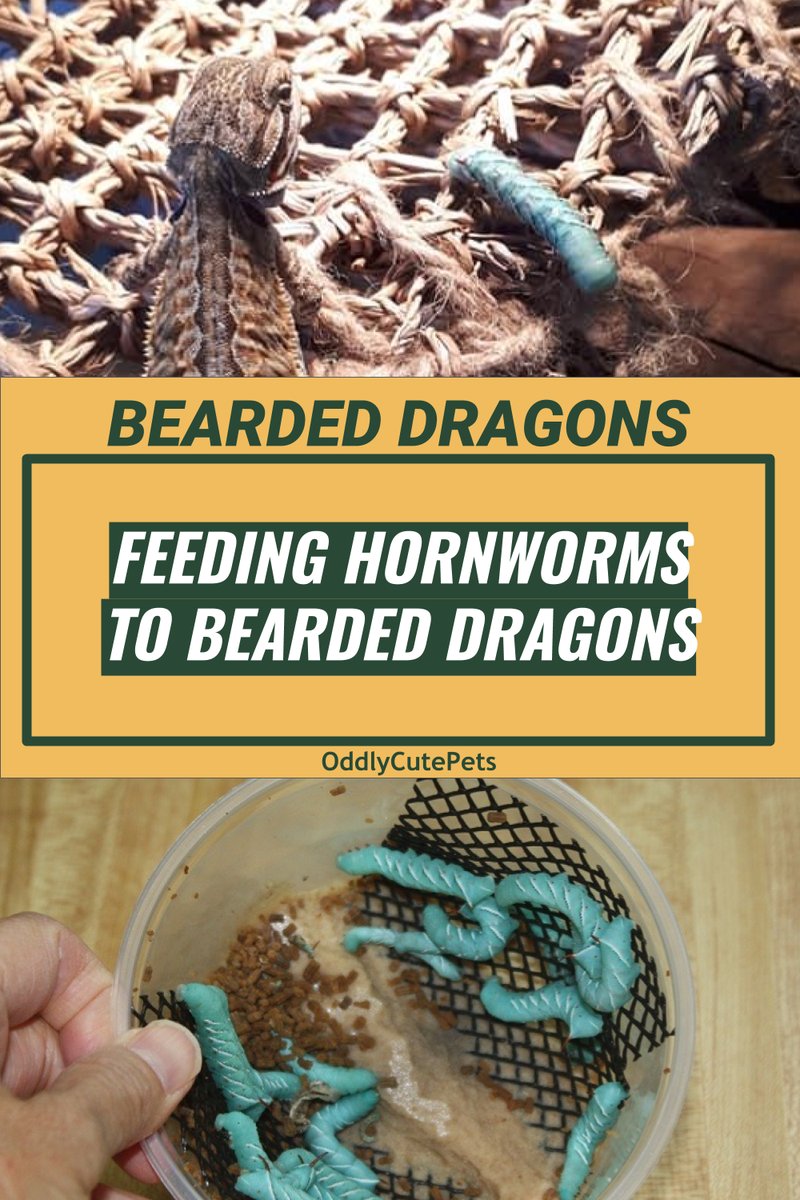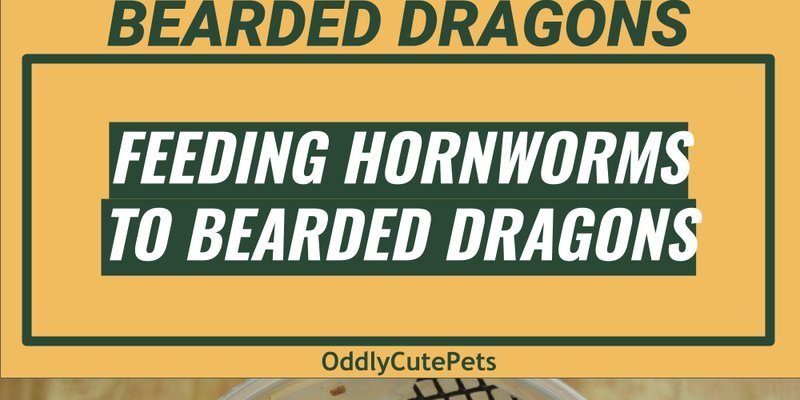
Imagine for a moment that your reptile is at a buffet. You’ve got a colorful array of food choices. At one end, there are crickets doing their best to jump away, and on the other, fresh greens that might seem a bit boring. Hornworms might just be the dessert table—rich, soft, and enticing. But before you start tossing them into the tank, let’s explore what hornworms are, their nutritional benefits, and if they’re a good match for your reptile’s diet.
What Are Hornworms?
Hornworms are the larvae of the five-spotted hawk moth, characterized by their bright green bodies and distinctive horn-like protrusion at the tail end. They can grow to be quite large, often around 4-5 inches long, and they are soft-bodied, making them easy for reptiles to consume. **Hornworms are often raised as a food source for other pets**, like birds and reptiles, and can be found at many pet stores or online.
You might be surprised by the popularity of hornworms. They not only look appealing, but they also have a high moisture content, which can help keep your reptile hydrated. This can be a big plus, especially if you have a reptile that tends to shy away from drinking water. So, if you’ve got a lizard, snake, or even a turtle, hornworms could be an interesting addition to their menu.
Nutritional Value of Hornworms
Now, let’s get into the meat of the matter—what are hornworms made of? When it comes to nutrition, hornworms pack a punch. Here’s a quick rundown of their nutritional content:
- Protein: Hornworms offer a good source of protein, which is essential for growth and maintenance in reptiles.
- Fat: While high in protein, they also contain a moderate amount of fat, which can be beneficial but should be balanced with other food types.
- Moisture: With their high moisture content, hornworms can help keep your reptile hydrated.
However, here’s the thing: it’s essential to offer hornworms in moderation. Too much could lead to obesity or nutritional imbalances. Always make sure to include a variety of food items to ensure your pet gets all the nutrients they need.
How to Feed Hornworms to Your Reptile
Okay, so you’ve decided hornworms might be a good fit. But how do you actually feed them to your reptile? Here are some simple steps to follow:
1. **Purchase Fresh Hornworms:** Look for hornworms at your local pet store or online. Make sure they’re fresh and lively. If they’re sluggish, they might not be as healthy.
2. **Prepare the Habitat:** Depending on your reptile, you might want to place the hornworms in a separate feeding dish. This keeps things neat and helps your reptile focus on their meal.
3. **Monitor the Quantity:** Start with one or two hornworms, especially if your reptile is trying them for the first time. You can always add more if they seem to enjoy them!
4. **Observe Reactions:** Keep an eye on how your reptile responds. If they eagerly gobble them up, great! If they seem disinterested, you might need to try a different feeding strategy or offer a different food type.
Feeding hornworms can be a fun way to mix things up and introduce variety into your reptile’s diet.
Benefits of Feeding Hornworms
Feeding hornworms to your reptile comes with several benefits. Besides being tasty, here are a few reasons why hornworms could be a great addition:
– **Hydration Aid:** The high moisture content in hornworms helps support hydration, which is especially important for reptiles that may not drink enough water.
– **Easy to Digest:** Hornworms are soft-bodied and easy to chew, making them suitable for reptiles of various ages and sizes.
– **Nutrient-Rich:** These little guys are packed with protein, which is essential for muscle growth and overall health.
– **Variety in Diet:** Just like us, reptiles can get bored with their food. Introducing hornworms can add some excitement to meal times!
Ultimately, hornworms can be an excellent treat or staple in your reptile’s diet when offered correctly.
Are There Any Risks?
While hornworms have a lot going for them, there can be risks if you’re not careful. Here are some points to keep in mind:
– **Overfeeding Concerns:** As mentioned, too many hornworms can lead to obesity. It’s essential to balance their intake with other food sources.
– **Nutritional Imbalance:** Hornworms should complement a well-rounded diet. Relying solely on them could lead to deficiencies in other essential nutrients.
– **Potential Allergies:** Although rare, some reptiles might have allergies to certain insects. Always monitor your pet after introducing a new food.
So, while hornworms can be a delightful addition to your reptile’s diet, moderation is key.
Alternatives to Hornworms
If you find that hornworms aren’t the right fit for your reptile, there are plenty of other options to consider. Here are a few alternatives:
– **Crickets:** A classic choice, crickets are widely available and packed with protein.
– **Mealworms:** These are another popular option. They have a different nutritional profile but can be a great treat.
– **Superworms:** A bit larger, superworms are loved by many reptiles, though they should also be fed in moderation.
– **Vegetables and Greens:** Depending on your reptile’s dietary needs, many enjoy fresh veggies and greens.
Each type of food has its pros and cons, but mixing and matching can help create a balanced diet.
Hornworms can definitely be used as reptile feed, offering hydration and nutrition in a tasty package. They can help spice up your pet’s diet and keep mealtimes fun. Just remember to feed them in moderation and alongside other food options for a balanced diet. This way, you’ll have a happy, healthy reptile that enjoys their meals. So, next time you’re at the pet store, consider grabbing some hornworms for that delightful treat! Your scaly buddy might just thank you with a happy wiggle.

